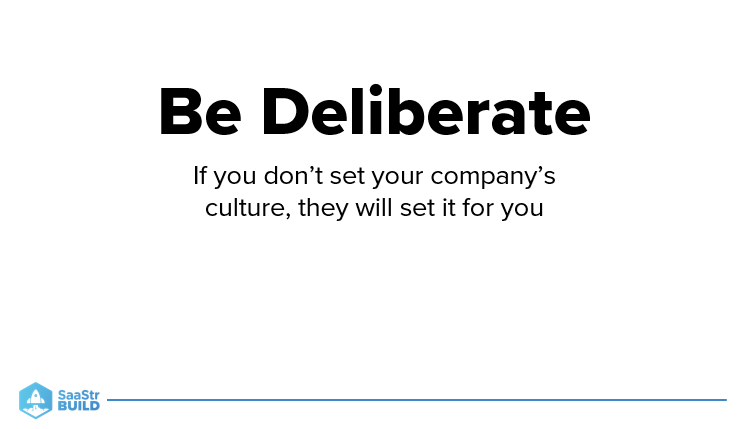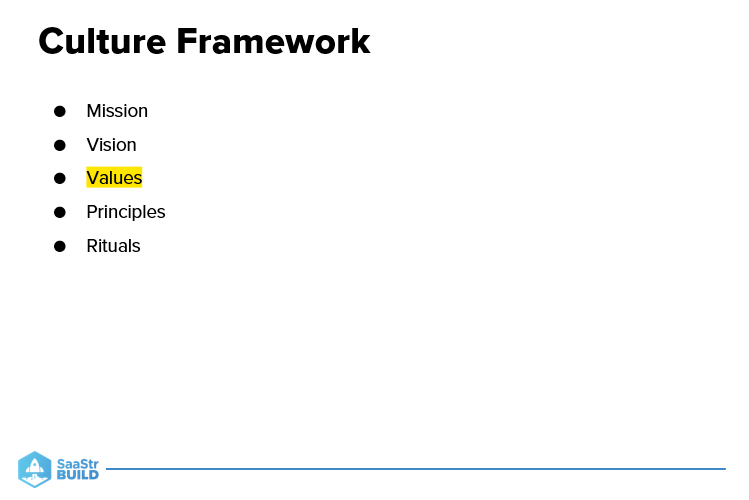Organizations need livable values that drive the business and employees. If appropriately discussed and embedded, a values playbook can be the hallmark of your organization and one of the most strategic tools founders and managers have.
Emery Wells, co-founder of Frame.io, discusses how to set results-driven company values and why it’s essential to embed those values into every part of the employee lifecycle.
Why setting up your culture matters
If you don’t deliberately set your company’s culture, your employees will set it for you, and you may not like what it becomes. Often, first-time entrepreneurs don’t know what type of culture they want to build and don’t know how their values differ from others. If you operate with your instincts as your primary guide, you’ll learn the importance of culture the hard way.
Company culture is like an ecosystem that has to be nurtured to thrive, and values are a foundational element in a cultural framework.
In your journey of setting company culture, write down everything you care about, no matter how big or small it is. By having your values, priorities, or intentions written down in a visual format, you’ll find that you will feel stimulated by seeing and assessing each one of them.
“Organizations that can’t live their values will join thousands of other organizations that write one thing on the wall and then do the opposite.”

Put setting values on top of your list
A healthy organizational culture doesn’t happen by chance. Culture demands deliberate and considerate identification of the core values you build your organization upon. To set organizational values:
- Take a benchmark of your current culture and do so with your employees’ input.
- Assess where your company stands and ask your team members the number one thing they deeply value. Avoid what feels generic and aim for authenticity instead.
- Ask your team members what precise words they would use to describe what’s important to the organization and how successful it is at putting these values into action.
The nine values outlined below reset the company culture at Frame.io and enabled the company to have a $1.3 billion exit.
Value #1: Start with YES
Let go of limiting beliefs, embrace the unknown, use your imagination, bring an infinite mindset to work, and expect great things. Starting with YES is believing everything is possible, regardless of past failures and rejections.
Value #2: Inject your soul into your work
Infuse your soul, energy, and thoughtfulness into every part of your work. How you contribute to your professional career is as crucial as what you do.

Value #3: Dig the hole
Take one tangible step forward today. Cut the time you spend thinking in half and pursue what you desire. Begin with that and work backward to establish action steps that will get you from point A to point B.
Value #4: Make it real
Keep your goals fresh in your mind, and don’t lose sight of them. Your end destination may remain quite similar over the long run. However, the action plan you develop for yourself along the way can change tremendously. Don’t forget to enjoy the satisfaction of knowing you accomplished what you set out to do.
Value #5: Lead with ideas
If founders can make sure their team is comfortable challenging and criticizing them, they’ll naturally build a culture where team members are comfortable suggesting new ideas.
Value #6: Rise above the status quo
Approach problems with a first-principles mindset. Break down issues into essential elements and then reassemble them from the ground up.
Value #7: Be a customer expert
Your ability to attract a customer is directly related to how you understand their pain points authentically. Put your customers as the focal point of your business.
Value #8: Get yourself up the curve
Put yourself to the next level continuously. Do the uncomfortable things as often as possible, and be the master of your destiny.

Value #9: Embrace differences
Always treat your vendors, partners, and customers how you’d hope to be treated. Embrace and celebrate differences because resisting differences can be detrimental to your future business.
Present your values to the team
To shift your company culture, you need to present your organizational values to your team. Your team’s workplace values must be in harmony with the organization’s workplace values. Even the most well-established value statements are useless if they’re hidden away. Values alignment helps your company accomplish its core mission by providing a common purpose.
“It doesn’t matter what happened yesterday. Every day and every project is an opportunity for you to do it better than before.”

Key takeaways
A values playbook helps founders, managers, and employees better understand what it means to have a values-led organization and what makes a value worth having. To build a values playbook at an early stage startup, you need to:
- Embrace that the culture is your company’s religion.
- Understand that majority drives the culture and in turn shapes values.
- Constantly reinforce these values throughout your organization.

